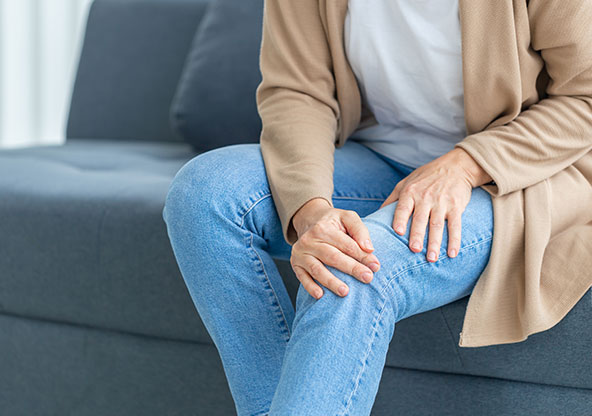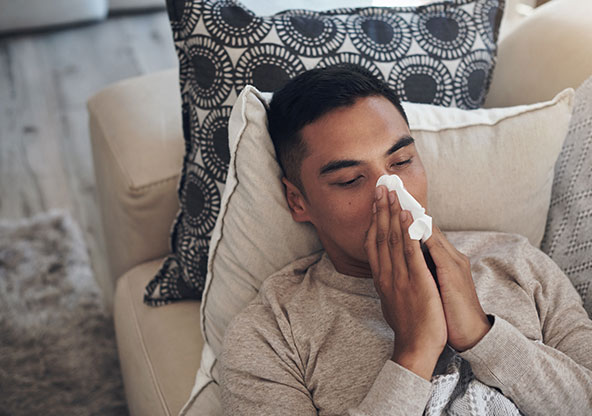Your Health
Find answers to common questions about your health. Learn about treatments, procedures, and ways to practice self-care.
Heart Health View More
 Diabetes and Heart Health
Diabetes and Heart Health
Discover how diabetes impacts heart health, from hidden symptoms to cardiovascular risks. Learn when indigestion or a racing heartbeat may signal heart problems, and explore ways to protect your heart with expert care from CHRISTUS Health.
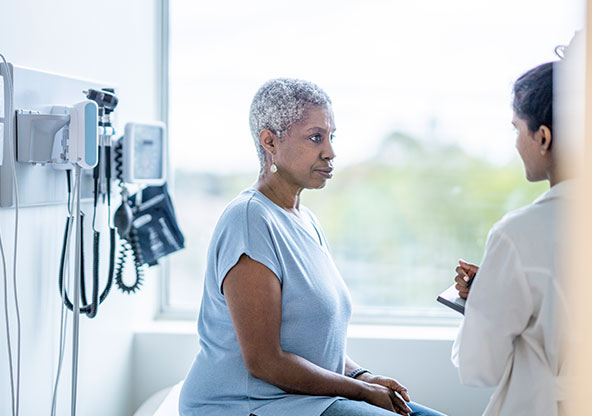 What to Expect at Your First Cardiologist Visit
What to Expect at Your First Cardiologist Visit
Learn what happens at your first cardiologist visit, tests, questions to ask, and how to prepare for your appointment with a CHRISTUS Health heart specialist.
 From Crisis to Strength: Jim Russell is Grateful to Have a Second Chance
From Crisis to Strength: Jim Russell is Grateful to Have a Second Chance
When Jim Russell's workout took a dangerous turn, the medical staff acted quickly. A potential tragedy became a testament to the power of rapid response. Read his incredible story of survival and recovery.
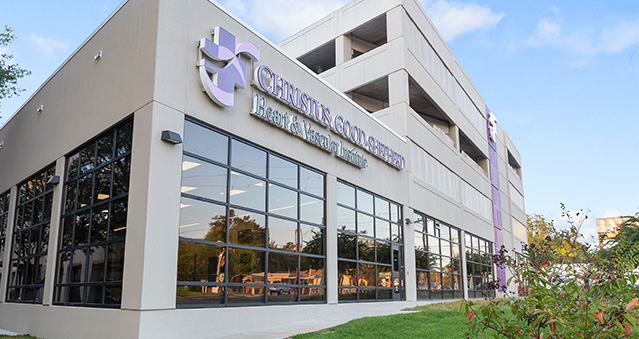 Minimally Invasive Valve Repair Marks a First for CHRISTUS in Longview
Minimally Invasive Valve Repair Marks a First for CHRISTUS in Longview
Read about James Timmons's experience with minimally invasive mitral valve repair at CHRISTUS Good Shepard Heart and Vascular Institute. Discover how innovative heart care is transforming lives in East Texas.
 What Does a Cardiothoracic Surgeon Do? Answers to Common Questions
What Does a Cardiothoracic Surgeon Do? Answers to Common Questions
What is cardiothoracic surgery, and what conditions do cardiothoracic surgeons treat? Get answers to common questions about cardiothoracic surgery.
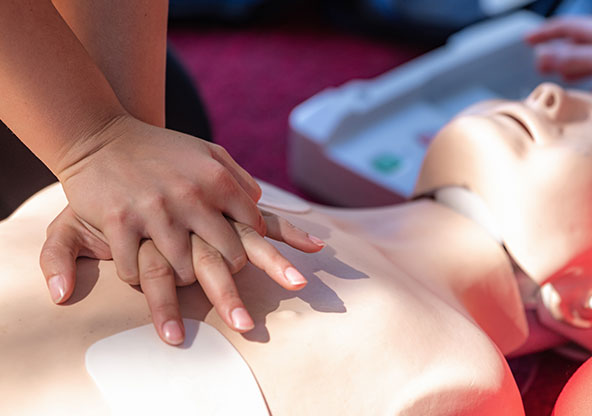 CPR: Know the Basics and Local Resources
CPR: Know the Basics and Local Resources
Learn about the importance of CPR with step-by-step guidance on how to perform it, and learn valuable information about local resources for training.
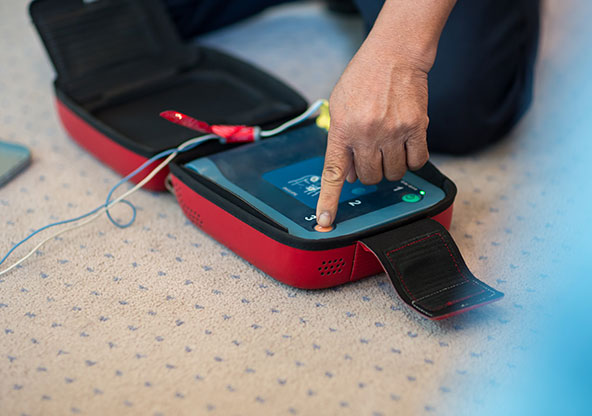 How Automated External Defibrillators Save Lives
How Automated External Defibrillators Save Lives
An Automated External Defibrillator is an easy-to-use device that can save a life in a few seconds. Here is everything you need to know about these machines.
 Preventive Cardiology: Taking Steps to Prevent Heart Disease
Preventive Cardiology: Taking Steps to Prevent Heart Disease
A cardiologist will take preventive measures to assess and monitor risk factors and if needed they can suggest appropriate treatments or interventions.
 Learn What to Do If Someone is Having a Heart Attack
Learn What to Do If Someone is Having a Heart Attack
Having a plan can help you act quickly should a heart attack happen to someone with you. If this medical event occurs, time is of the essence.
Family Medicine View More
 What is a Family Medicine Doctor?
What is a Family Medicine Doctor?
Many different types of providers offer families and individuals personal care for their families. Understanding the specialists and expertise of each type, like a family medicine doctor, can help you make the best decision on which provider to choose.
 Boost Immunity and Conquer Sickness in 2025 with Proven Strategies
Boost Immunity and Conquer Sickness in 2025 with Proven Strategies
Stay healthy in 2025. Discover essential tips for a strong immune system and have a game plan when sickness strikes through On Demand Care.
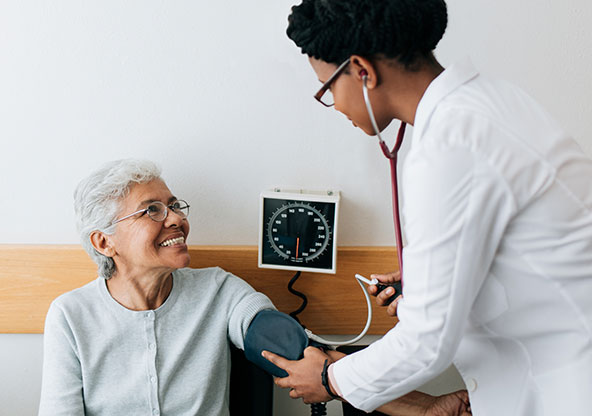 Primary Care Provider: Your Partner in High Blood Pressure Management
Primary Care Provider: Your Partner in High Blood Pressure Management
On your journey to better health, your primary care provider is your guiding light. They’re your partner in identifying and managing a critical condition – high blood pressure.
 Do You Have an Exercise Prescription?
Do You Have an Exercise Prescription?
Exercise prescriptions are becoming more popular in health care, as they are a simple way to improve overall health and empower patients. Learn more about the benefits of exercise prescriptions.
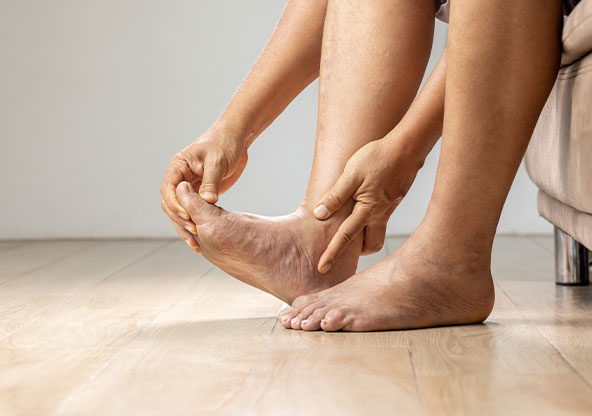 How Long Does Gout Last?
How Long Does Gout Last?
Find out how to manage your gout symptoms and how long they may last with the right care.
 What Does Lupus Feel Like?
What Does Lupus Feel Like?
Find out how visiting a primary care doctor can help treat symptoms of lupus and prevent future flare ups.
 Why You Should Take a Kidney Infection Seriously
Why You Should Take a Kidney Infection Seriously
A kidney infection can be a painful condition. Learn who is more likely to be affected and find out about treatment and how to reduce your risk.
 Health at 50+: What Women Need to Know
Health at 50+: What Women Need to Know
Women’s unique health needs begin to change with age. Find out what older women need to know to stay healthy and live a long and happy life.
 22 Activities That Increase Your Risk of Chronic Illness
22 Activities That Increase Your Risk of Chronic Illness
While many factors contribute to a person's risk for diseases, certain lifestyle choices can increase the chances of developing a chronic condition.
Treating Common Illnesses View More
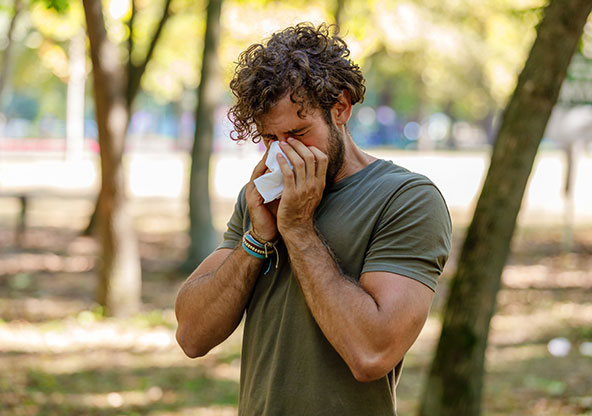 Treating Nasal Obstruction and Congestion During Allergy Season
Treating Nasal Obstruction and Congestion During Allergy Season
Find relief from allergy congestion. Discover why your nose blocks when you cry, the role of turbinates, plus home remedies and surgical options for lasting relief.
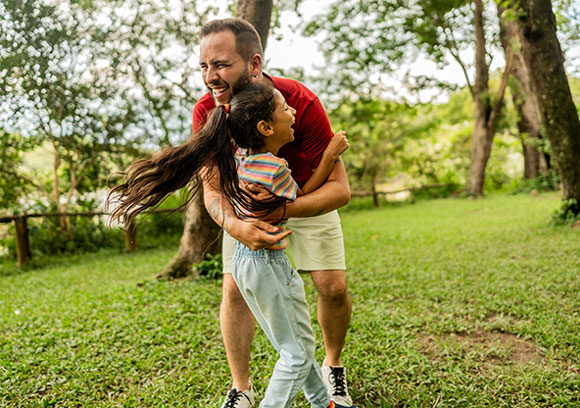 Are You Protected Against Measles? What to Know About the MMR Vaccine
Are You Protected Against Measles? What to Know About the MMR Vaccine
Measles is a highly contagious virus, but the MMR vaccine offers effective protection. Learn who needs it, how long it lasts, and how to get vaccinated.
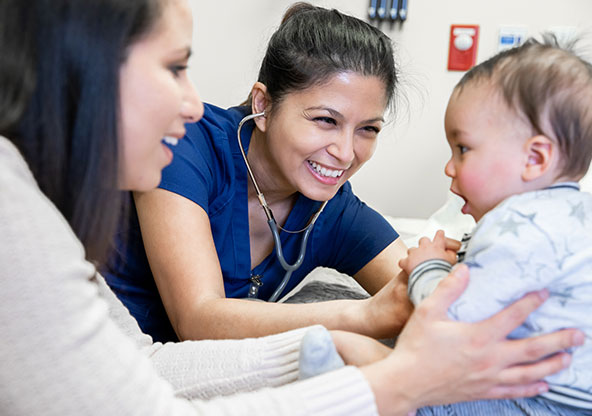 When to Take a Baby with RSV to the Hospital?
When to Take a Baby with RSV to the Hospital?
CHRISTUS Health clinicians explain when parents should be concerned about RSV in their children. As a parent, it’s difficult to know whether your child has a common cold or RSV.
 Sinus Infections vs. Allergies: Key Differences and Effective Treatment Strategies
Sinus Infections vs. Allergies: Key Differences and Effective Treatment Strategies
Sinus Infections vs. Allergies: Learn how to identify unique symptoms, manage conditions effectively, and when to seek medical help for both.
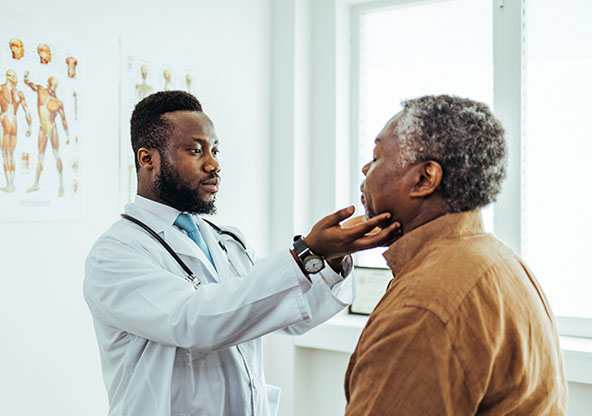 Is a Sinus Infection Contagious?
Is a Sinus Infection Contagious?
Sinus infections, also known as sinusitis, mimic the symptoms of colds, but can a sinus infection spread as quickly as a cold?
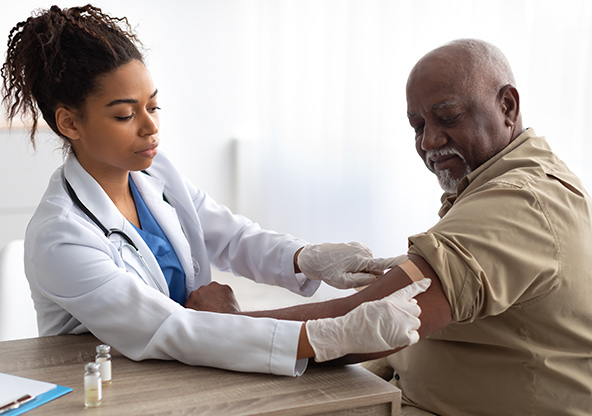 How Long Does the Flu Vaccine Last?
How Long Does the Flu Vaccine Last?
Our clinicians answer questions about the flu vaccine. For example, how often do you need it? Why should you get the flu vaccine? Does it make you sick? Read more here.
 How Serious Is Influenza and How Does the Flu Spread?
How Serious Is Influenza and How Does the Flu Spread?
Influenza, or the flu, is still very serious and can lead to health complications or death. Learn how flu spreads and what you can do to help prevent it.
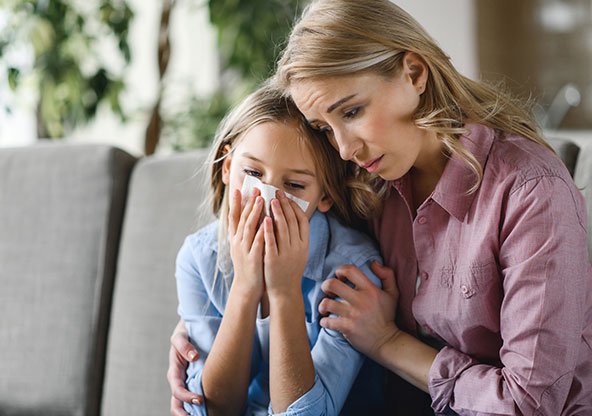 Stages of the Common Cold
Stages of the Common Cold
The common cold is a viral infection that affects the nose, throat, and lungs. There is no cure and antibiotics won't help. Find out the common stages of the common cold.
Caring for Our Children View More
 4 Tips for Talking to Your Child About Starting Therapy
4 Tips for Talking to Your Child About Starting Therapy
CHRISTUS Health expert Gabriela Nunez, PsyD, shares tips on how you can talk to your child about starting therapy.
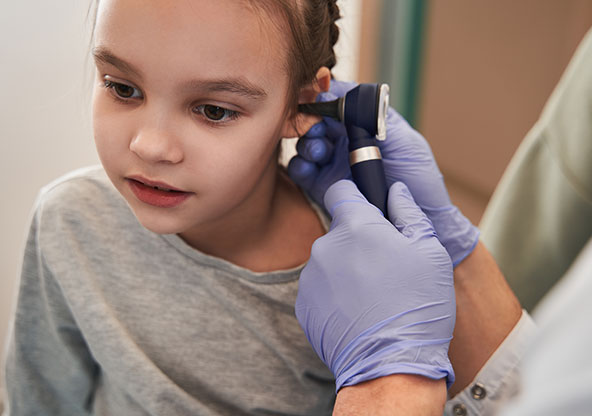 How to Prevent Ear Infections
How to Prevent Ear Infections
Ear infections are practically a childhood rite of passage. Learn how to prevent ear infections using good hygiene, vaccinations, and other steps.
 Congenital Heart Defects: What Parents Need to Know After Their Baby's Diagnosis
Congenital Heart Defects: What Parents Need to Know After Their Baby's Diagnosis
Has your baby been diagnosed with a heart defect? Find out answers to your questions from Maternal Fetal Medicine Specialist Dr. Acosta.
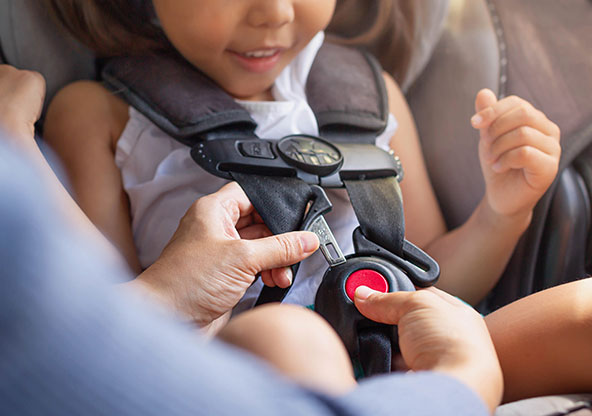 Child Car Seat Safety: Tips to Protect Your Little Ones in the Car
Child Car Seat Safety: Tips to Protect Your Little Ones in the Car
A staggering 46% of all car seats are misused, posing a significant risk to children. Learn more about how to ensure your child is safe in the car through proper car seat selection, installation, and sizing.
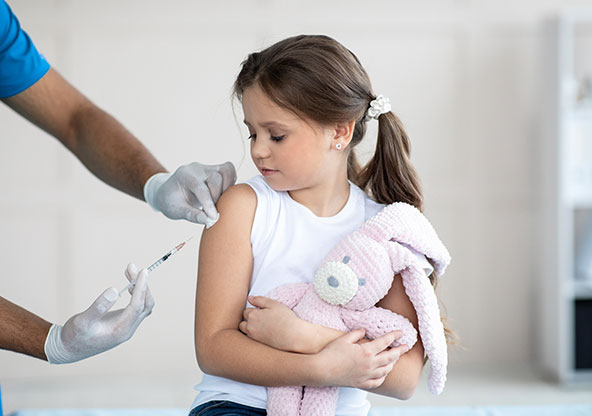 Navigating Child Vaccinations: How Your Pediatrician Can Help
Navigating Child Vaccinations: How Your Pediatrician Can Help
Protect your children’s health with vaccines. Vaccines are safe, effective, and important to help protect your child from serious diseases.
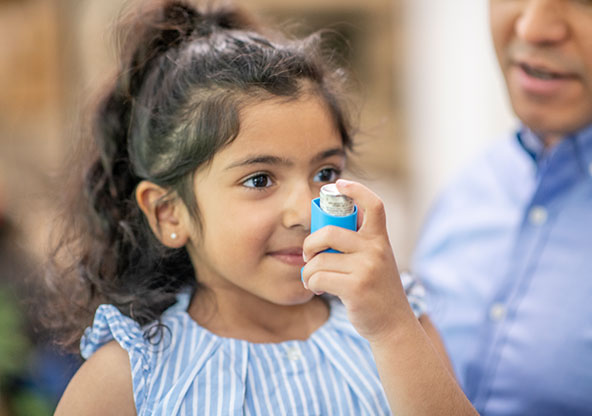 Does Your Child Have an Asthma Action Plan?
Does Your Child Have an Asthma Action Plan?
Ensuring a smooth transition back to school includes preparing your child's Asthma Action Plan. Find out how you can create an Asthma Action Plan for your child.
 9 Tips to Prepare Your Child for the New School year
9 Tips to Prepare Your Child for the New School year
Getting back into the routine of school is always challenging, but it will be extremely challenging if you do not prepare. Here are nine ways you can help your child prepare for the school year now.
 No Evidence That Vaccines Cause Autism
No Evidence That Vaccines Cause Autism
Multiple large studies have been performed by independent researchers from around the world. There is no link between autism and vaccines.
 Infant Sleep Safety
Infant Sleep Safety
Creating a safe sleep environment for your baby can prevent Sudden Infant Death Syndrome, the most common cause of death in babies less than 3 months. Learn more about Safe Sleep from our experts.
Orthopedics View More
 Leg Pain and Fatigue: Causes, Relief, & When to See a Doctor
Leg Pain and Fatigue: Causes, Relief, & When to See a Doctor
Learn what causes leg pain and fatigue, how to find relief, and when to seek care. CHRISTUS Health offers expert orthopedic support.
 Hip Replacement Recovery Tips & Timeline
Hip Replacement Recovery Tips & Timeline
Learn what to expect during hip replacement recovery week-by-week. Explore timelines, side effects, and expert care from CHRISTUS.
 Knee Replacement Recovery Process and Timeline
Knee Replacement Recovery Process and Timeline
Learn what to expect during knee replacement recovery week-by-week. Explore timelines, side effects, and expert care from CHRISTUS.
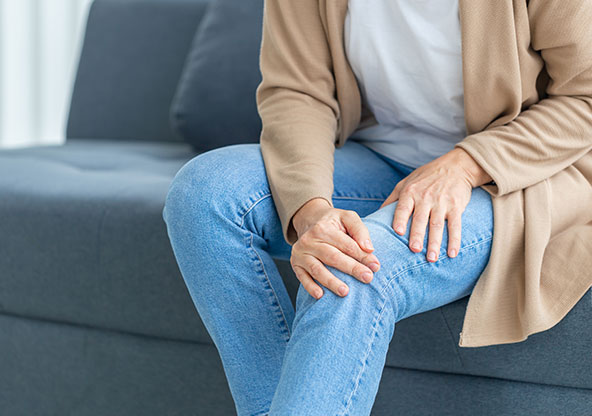 Pain After Knee Replacement? Learn What’s Normal and What’s Not
Pain After Knee Replacement? Learn What’s Normal and What’s Not
If you recently had knee replacement surgery, learn tips to manage pain post-surgery and how to watch for signs of complications.
 Why Acting Early on Joint Pain Matters
Why Acting Early on Joint Pain Matters
Don’t let joint pain take over your life. Early treatment improves outcomes, speeds recovery, and prevents complications. Take control with CHRISTUS Orthopedics.
 Is Joint Pain Normal? Signs, Treatments, and Relief Options
Is Joint Pain Normal? Signs, Treatments, and Relief Options
Learn the key indicators of joint pain that requires medical care. Explore how joint replacement surgery can help you regain mobility and reclaim your life.
 9 Questions to Ask Your Surgeon About Joint Replacement
9 Questions to Ask Your Surgeon About Joint Replacement
Preparing for joint replacement? Empower yourself with these 9 essential questions to ensure the best care, recovery, and long-term results.
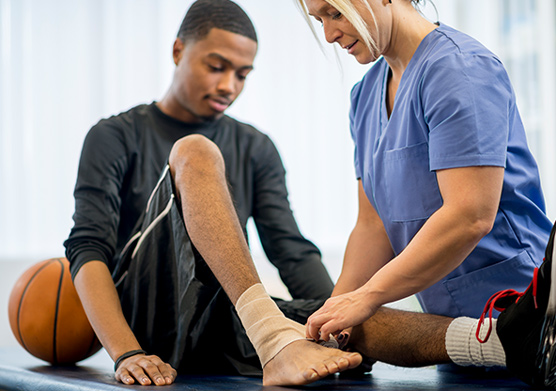 10 Common Sports Injuries and How to Treat Them
10 Common Sports Injuries and How to Treat Them
Playing sports helps you stay active and healthy, but it can cause injuries, too. Learn about the most common sports injuries from CHRISTUS Health.
 A Strength Coach's POV: How to Recover From Injury
A Strength Coach's POV: How to Recover From Injury
Brian Thompson's personal story: A CHRISTUS strength coach’s insights to injury recovery.

